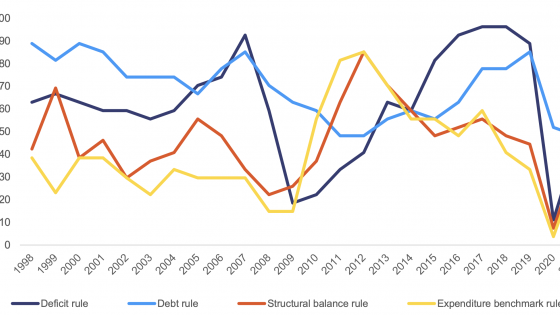DP1737 Comparative Politics and Public Finance
This paper presents a model of electoral accountability to compare the public finance outcomes under a presidential-congressional and a parliamentary system. In a presidential-congressional system, contrary to a parliamentary system, there are no endogenous incentives for legislative cohesion, but this allows for a clearer separation of powers. These features lead to clear differences in the public finance performance of the two systems. A parliamentary system has redistribution towards a majority, less underprovision of public goods, more waste and a higher burden of taxation, whereas a presidential-congressional system has redistribution towards a minority, more underprovision of public goods, but less waste and a smaller size of government.

